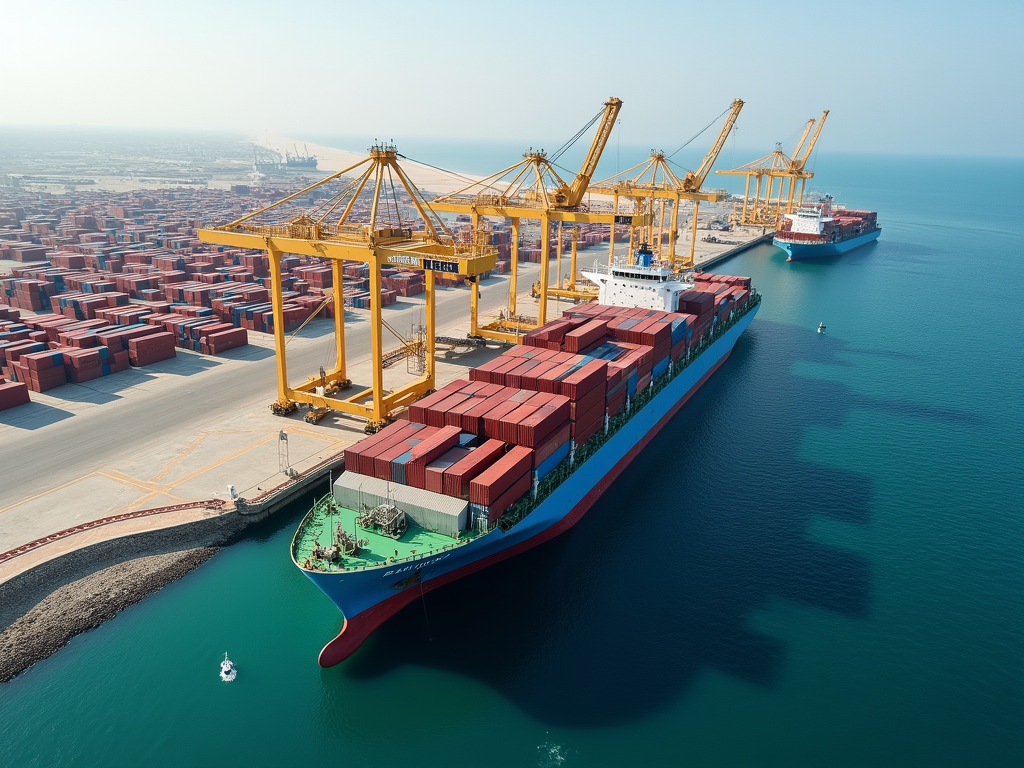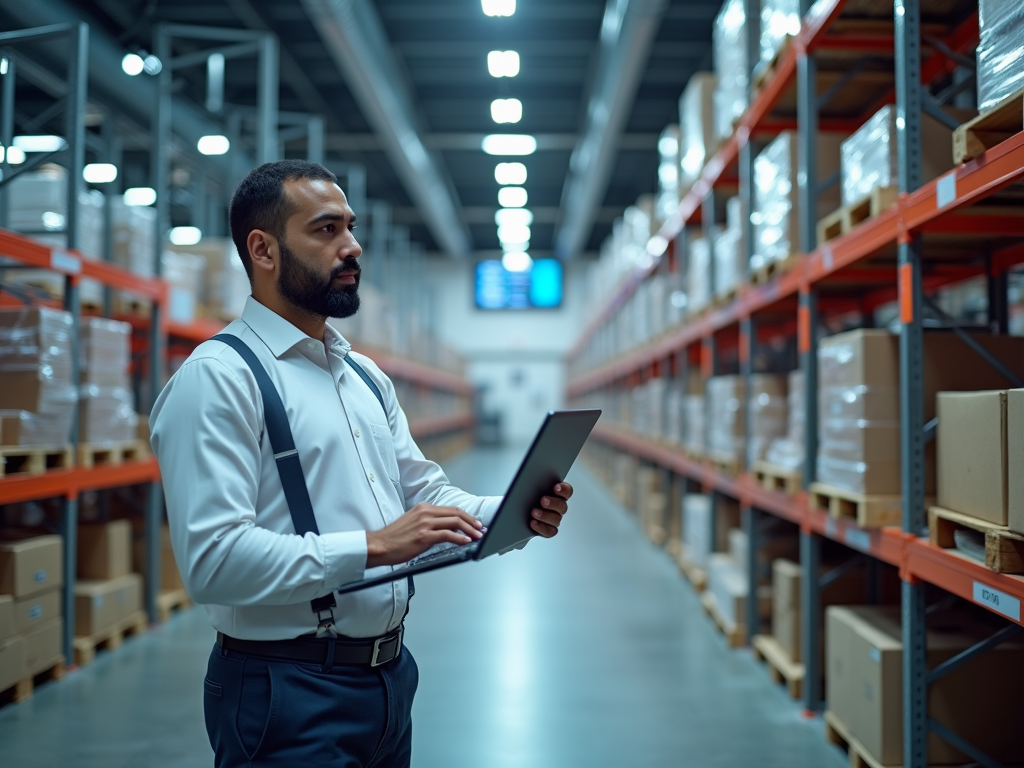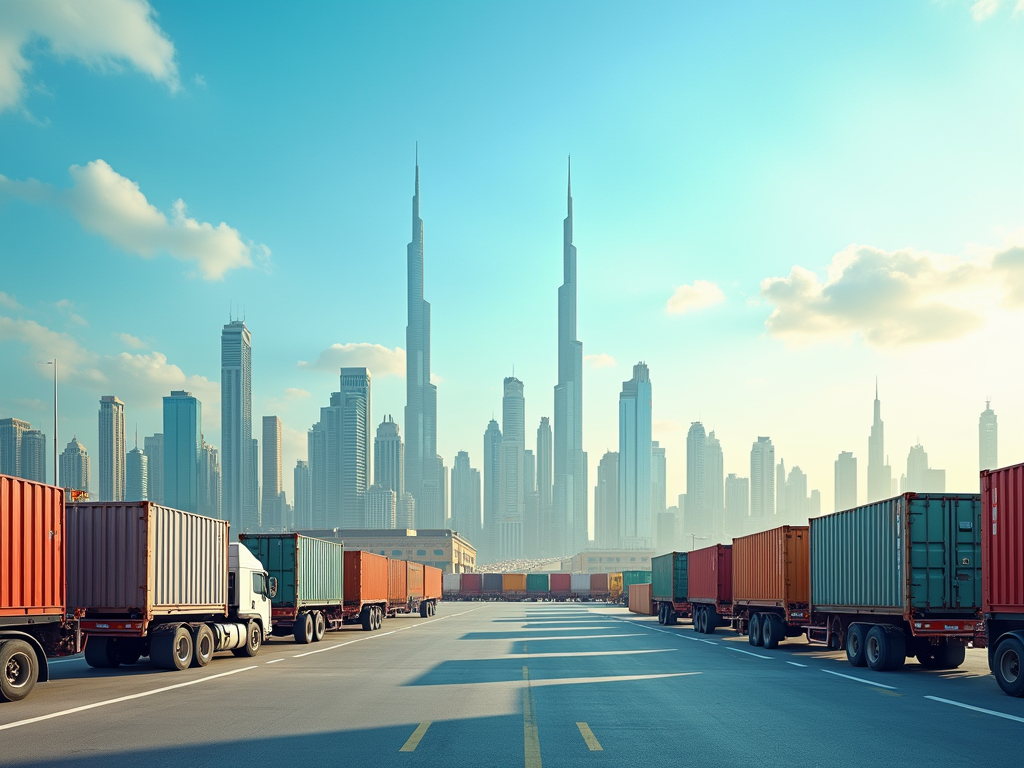Dubai’s logistics and supply chain sector presents a unique and robust business opportunity, driven by its strategic geographical location, advanced infrastructure, and an increasingly diversified economy. With a focus on innovation and efficiency, the Emirate is becoming a global hub for trade, making it an attractive locale for businesses aiming to leverage the booming market. This article will delve into the various aspects of Dubai’s logistics landscape, uncover its advantages, and highlight the potential challenges and strategies for success.
The Strategic Location of Dubai

Dubai’s geographical position acts as a critical advantage for logistics and supply chain businesses. Situated at the crossroads of Europe, Asia, and Africa, Dubai serves as a gateway for international trade. The city’s proximity to these major markets ensures that goods can be transported efficiently and swiftly. Furthermore, Dubai has established itself as a premier base for companies looking to tap into the Gulf Cooperation Council (GCC) markets. The key benefits of Dubai’s strategic location include:
- Access to Major Trade Routes: Its location enables easy access to shipping lanes, air routes, and land transportation corridors.
- Proximity to Emerging Markets: Emerging economies in Asia and Africa present new opportunities for trade and investment.
- Integrated Transportation Infrastructure: The city boasts well-developed ports, airports, and road networks that facilitate seamless logistics operations.
- Regulatory Environment: Dubai’s free trade zones offer favorable conditions for international businesses, including 100% foreign ownership.
- Connectivity: With leading cargo airlines and shipping companies, Dubai ensures fast and reliable transport options.
Advanced Infrastructure Supporting Logistics

Dubai invests heavily in state-of-the-art logistics infrastructure, enhancing its appeal to businesses in the supply chain sector. The city’s facilities include the Jebel Ali Port, the largest man-made harbor in the world, and Dubai International Airport, one of the busiest airports globally in terms of cargo volume. Highlights of its logistics infrastructure consist of:
- Jebel Ali Port: Handling about 70% of Dubai’s cargo, it is crucial for import and export activities.
- Dubai Logistics City: A dedicated logistics zone that integrates warehouses, freight forwarding, and other functions.
- Smart Logistics Solutions: Implementation of IoT, AI, and blockchain technologies for efficient supply chain management.
- Cold Chain Facilities: Essential for handling temperature-sensitive products, particularly in pharmaceuticals and food.
- Freight Rail Projects: Upcoming initiatives to enhance land connectivity across the GCC region.
Technology plays a pivotal role in the growth of logistics and supply chain operations in Dubai. The government’s push for a digital economy has led to extensive automation and the adoption of smart technologies. Companies are increasingly leveraging these tools to streamline their operations and improve customer satisfaction. Some technological advancements shaping the logistics landscape include:
- Artificial Intelligence: AI enhances demand forecasting, inventory management, and route optimization.
- Blockchain Technology: Provides transparency and security in transactions and helps track products throughout the supply chain.
- Internet of Things (IoT): Real-time monitoring of goods and assets, ensuring timely deliveries.
- Big Data Analytics: Facilitating data-driven decision-making for logistics operations.
- Automated Warehousing: Robots and automated systems minimize human error and boost operational efficiency.
Challenges in Dubai’s Logistics Sector
While Dubai offers numerous advantages, businesses must navigate several challenges to succeed in the logistics sector. High operational costs, fluctuating global economic conditions, and regulatory hurdles can pose significant risks. Other critical challenges include:
- Market Competition: Intense competition from both local and international companies increases pressure on prices and services.
- Workforce Availability: Recruiting and retaining skilled labor in logistics can be challenging as demand increases.
- Environmental Concerns: Growing focus on sustainability may require investments in eco-friendly logistics practices.
- Political Instability: Regional tensions can impact supply chain operations and trade routes.
- Technological Adoption: Smaller businesses may struggle with the costs and complexity of adopting new technologies.
Conclusion
Dubai’s logistics and supply chain sector is brimming with potential, offering unique opportunities for businesses willing to invest in this dynamic market. Its strategic location, advanced infrastructure, and technology-driven approaches create a fertile ground for growth. However, businesses must also prepare for the challenges inherent in this competitive landscape. By leveraging the strengths and addressing the challenges, companies can pave the way for success in Dubai’s logistics sector.
Frequently Asked Questions
1. What makes Dubai an attractive destination for logistics businesses?
Dubai offers a strategic location, advanced infrastructure, a favorable regulatory environment, and access to emerging markets, making it ideal for logistics operations.
2. How does technology influence logistics in Dubai?
Technology enhances operational efficiency through automation, monitoring, and data analysis, allowing businesses to optimize their supply chain processes.
3. What are some challenges facing the logistics sector in Dubai?
Challenges include high operational costs, market competition, workforce availability, and the need for sustainability in practices.
4. What role does the Jebel Ali Port play in Dubai’s logistics?
Jebel Ali Port is a vital asset for trade, handling the majority of Dubai’s cargo and serving as the largest man-made harbor globally.
5. What initiatives is Dubai taking towards sustainable logistics?
Dubai is investing in eco-friendly technologies and practices, promoting a shift towards sustainable operations in the logistics sector.
